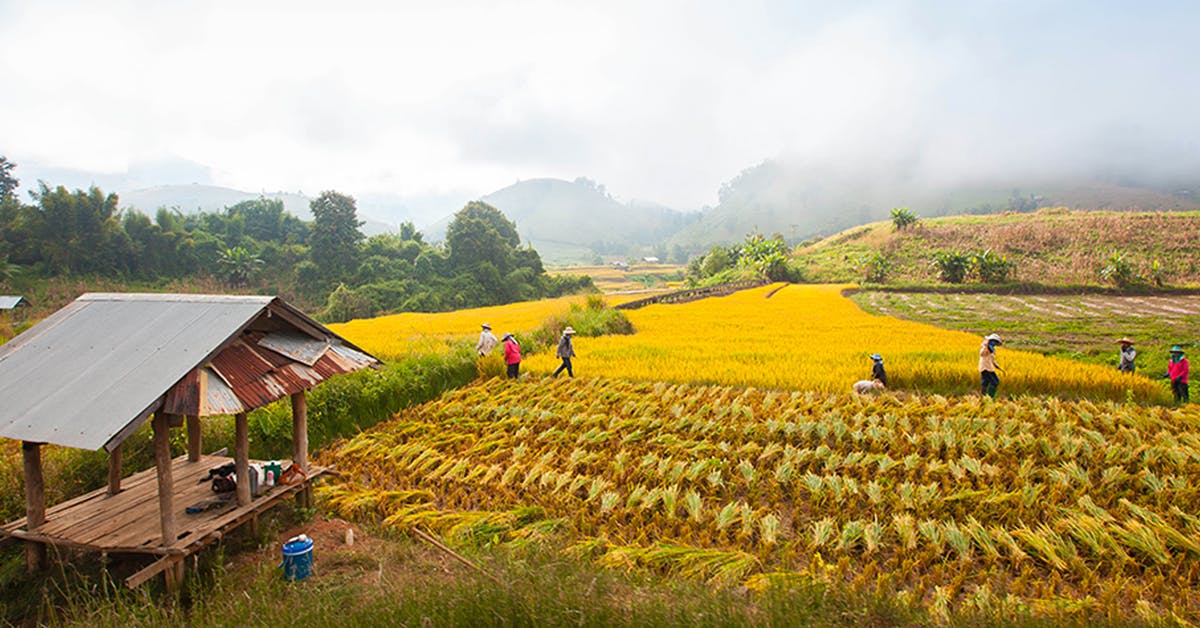
October 2, 2017
Believe in you
5 minutes
At AXA, we believe that we all have what it takes to live a better life whatever that may be. Believe in yourself and your goals, and count on us to help you overcome those difficulties and seize opportunities along the way.

11:56am local time, April 25th, 2015, Bhaktapur, Nepal
Just east of Kathmandu, a group of Nepalese children skips through magical Durbar Square in Bhaktapur as tourists admire the breathtaking scenery and ancient pagodas. Clouds dotting the sky are suddenly darkened by flocks of birds taking off, as the ground begins to tremble underfoot with a low rumble that soon becomes deafening. Centuries-old buildings begin to sway as a roof gives way and crumbles to the ground, kicking up so much dust it becomes impossible to see.
On Saturday, April 25th, 2015, Nepal had to face the worst natural disaster in the country in over 80 years. The 7.8 magnitude earthquake’s epicenter was located at less than 50 miles of Kathmandu, the most populated region in the country. Its consequences were disastrous.
The Only Way Through A Crisis Is Together
2:45pm local time, Singapore
Shaun Boulter, Regional Director of Security for AXA’s Global Secure solutions, is taking a stroll downtown when his smartphone buzzes in his pocket. He picks up as a member of his operations team quickly briefs him on the events unfolding in Nepal. Though he knows there are strict protocols in place for such an event, protocols he’s helped develop, he knows his team will face challenging times, and days, ahead.
A regional crisis team is immediately activated in Hong Kong and coordinates an immediate response with our New Delhi office to dispatch a medical and operations team and best assist our clients on the ground.

Thousands of kilometers away, Aurélie Madina, a Process Manager at AXA Assistance France medical department in Châtillon, France, worked this day. She heard about the quake before she came to work. You always know after this kind of event that you will have cases, but you never know the volume, the gravity…
She continues, It’s never the first day that’s the worst, it’s usually the day after when you start having calls, information from clients… this is when you realize how bad the situation is.

Aurélie is part of the team responsible for managing processes for evacuation and medical repatriation, liaising with other AXA offices around the world, dealing with sensible cases, etc. With regards to Nepal, among the 43 cases impacting 67 clients from around the world, she remembers the woman trapped under debris and rubble in Kathmandu (video above), a very sensitive case due to the injuries sustained. In addition to her team, many other people and organization were involved in the effort: We were in contact with the French Consulate, the crisis unit of Ministry of Foreign Affairs…
Medical director for AXA Assistance France Dr. Dominique Taoko confirms how he also has to work closely with governments on international cases such as those in Nepal. The French Ministry of Foreign Affairs helps us a lot, foreign governments… and we work with providers and security consultants around the world to best assess risks and respond to emergencies situations. Coordination with local experts and authorities is key to ensure we take the right decision for our clients.
Shaun Boulter knows a thing or two about security consulting, his main occupation before joining AXA. For him, managing the Nepal crisis had some particularly tough moments:

Shaun Boulter
Global Head of Security Operations and Services at AXA Partners
Probably the biggest moment was receiving a call stating we had clients on a trekking expedition… In Nepal, it’s very difficult environment to move around and the infrastructure isn’t great on a good day, after the earthquake it was pretty much non-existent, especially as you got out of Kathmandu. Our partner on the ground had helicopters, but all helicopters had been seconded by the military and they were going to the worst-hit areas first… so we had a delay in the time before we could actually start looking for our missing people…
However, because some of the communications were thankfully still working, the local team on the ground (in Nepal) was trying to communicate with other smaller support offices, villages and guides they had contact with, to see if they knew the whereabouts of the group we were looking for. Nepal is still using old analogue lines, all it takes is for one telephone line to come down and a whole area can be blacked out… but thankfully we did end up finding them.
With all cases closed successfully within a week, we turned our attention to the long-term effects of the crisis. In parallel, one of the world’s leading humanitarian organizations and AXA partner, CARE, had already launched an emergency relief plan in Nepal immediately after the earthquake. The impact was widespread, affecting about a third of the Nepalese population. Bridges, roads, homes, school, health centers and water systems were destroyed, not built to withstand an earthquake of this size.
12:30pm, April 25th, 2017, 2 years after the earthquake, Bhaktapur, Nepal
As bamboo scaffolding props up an ancient pagoda looking over Durbar Square, children run through the throngs of tourists that have returned following the earthquake. A few miles away, several apartment complexes are being built according to new building codes that are now being severely enforced, ensuring that even if disaster does strike, Nepal’s people will be better prepared than ever thanks to the work of humanitarian organizations like CARE, insurance companies like AXA and other charities or companies who try to improve lives in the region every day.
Related content

Celebrating Five Years With CARE
read moreSupporting long term recovery
So in the past two years CARE has reached almost 200,000 people with AXA’s help, distributing food, clean water, hygiene supplies and temporary shelter materials, coordinating with the Nepalese government and partners to help build safer homes, revive the economy, rebuild infrastructure and increase food security.
AXA is in partnership with Care since 2011, providing funds and technical support all over the world.
These efforts honor the work of Shaun, Aurélie, Dominique and many others like them who stand by 24/7, ready to deal with any and every new challenge, as they help clients and communities around the world manage whatever crisis comes their way.
More than 8,500 AXA Assistance experts along with a trusted network of global partners are dedicated to their mission: ensuring people’s protection anytime, anywhere.
At the side of communities impacted by recent natural disasters
Major natural disasters across the world have affected many people in the past months (Mexico, US, Lesser Antilles, India, Nepal, Bangladesh). According to its nature and impact, AXA Assistance teams have activated crisis cells, setting up extra help lines and sending medical and operational teams on the ground for immediate response. AXA allocated economic and in-kind donations to its main humanitarian partners in the front-line like the Red Cross, UNICEF and CARE. Some AXA employees also gave their time to support the populations affected. Read more.
Our goal is to direct all goodwill where is most needed, not only at the moment of the disaster but contribute to the reconstruction of infrastructure, help communities retake their normal life and influence society to be better prepared against future disasters through funding research and prevention programs.



